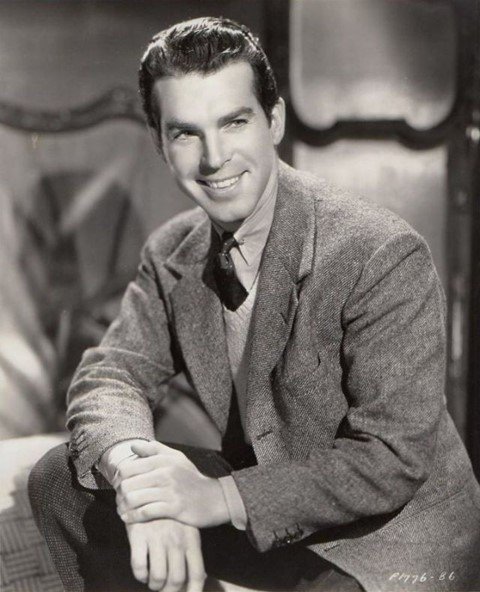Leading Men

























Notice: For those using a mobile device, the captions in the gallery are not visible. Switch to desktop to read the captions.
Hollywood had a few qualifications for the classic leading man: to be, more often than not, dark-haired; to speak well; to be a gentleman at all times, and to be tall. (Although for this last, Alan Ladd proved an iconic exception.) The most popular leading men of the day were Errol Flynn, Robert Taylor, Stewart Granger, Humphrey Bogart, and Franchot Tone. Some actors of the forties had been acting since the early thirties (Clark Gable and Ray Milland); others were new faces (Dana Andrews and Van Heflin).
The American public could prove very touchy about the manner in which their favorite actors were portrayed. For example, studios were timid about casting Cary Grant as a supposed murderer in the film Suspicion (1941), fearing what the move would do to his image. On the other end of the spectrum, audiences expected nothing less than toughness and fast talk from Humphrey Bogart and James Cagney. A problem for any actor was that he could be permanently typecast; leaving his accustomed sphere to try a different type of role could result in a loss of popularity. But others fought for more sophisticated roles and excelled (Tyrone Power, James Stewart, Spencer Tracy).
Whatever his name, forte, or genre, the leading man of the forties built a revered image of masculinity and provided a presence of solidness and courage. It would be quite impossible to call this gallery a complete list of famous leading men from the forties; rather, this is a selection of some of the most iconic.
Photograph Credits- AMECHE, CAGNEY, LADD, MACMURRAY, PAYNE: vintag.es; ANDREWS, FLYNN, GABLE, HEFLIN, JOHNSON, OLIVIER, PIDGEON, POWER, TAYLOR: Jack’s Movie Mania; BOGART, COOPER, FONDA, MILLAND, YOUNG: oldtimeradiodownloads.com; CROSBY: thevintagenews.com; GRANT: reddit; REAGAN: clickamericana.com; STEWART: pickpik; TRACY: Wikipedia; WAYNE: R.W.” Doc” Boyle/Old West Daily Reader

“I am pro-freedom and pro-decency.” Even as a popular leading man of the era, he wasn’t afraid to risk his film career by diving into Hollywood politics in the 1940s.